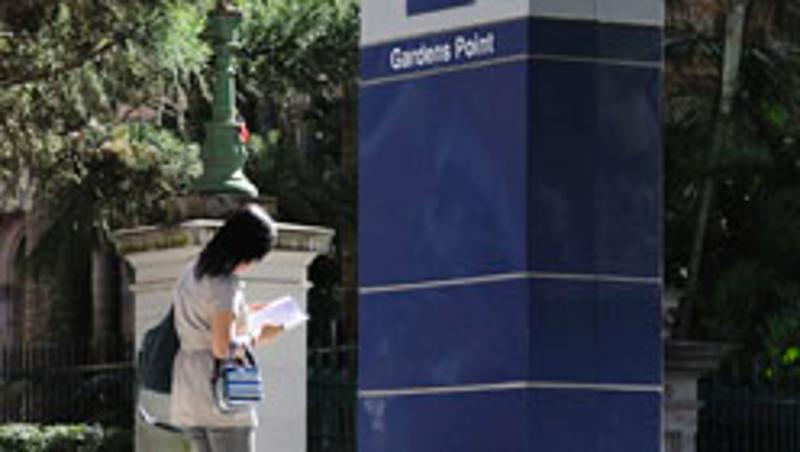
The previously discarded waste from Queensland's sugarcane crop is fast heading towards replacing up to a third of the state's unleaded petrol needs, thanks to QUT research at the new Mackay Renewable Biocommodities Pilot Plant opened today (July 9).
The purpose-built pilot plant, hosted by Mackay Sugar at the Racecourse Mill, Mackay, is a nucleus for a potential biorefinery precinct where Queensland's exciting emerging biofuels and bio-products industries will be researched and developed, Queensland University of Technology's Professor James Dale said.
The new plant was opened by Premier Anna Bligh; Federal Minister for Innovation, Industry, Science and Research Senator Kim Carr and QUT Vice-Chancellor Professor Peter Coaldrake.
Professor Dale, who heads QUT's Centre for Tropical Crops and Biocommodities, said the pilot plant was a unique research facility that would produce biofuel for vehicles and other products such as building materials, paints, waxes and resins out of the waste from sugarcane (bagasse) and other cane by-products as well as waste and other crops.
"These new low greenhouse gas industries have the potential to future-proof Australia from what is becoming a carbon-constrained world by using the plant-based waste that does not take from food production," he said.
"Bio-based products require less energy to manufacture and produce less greenhouse gas emissions and other pollutants than do fuels and chemicals made from petroleum products.
"We believe the Mackay Pilot Plant will bridge the gap between laboratory research and commercial reality. It could potentially reduce commercialisation costs for new technologies by over $10 million and reduce the commercial timeframe by five years."
QUT's research involves turning bagasse into ethanol and other biofuels and using the waste products left over from that process to make further bio-products.
QUT is also developing enhanced sugarcane for biofuel production because it is regarded as the best biomass feedstock (the raw plant-based materials for industry) in the world.
"Queensland's largest agricultural crop is sugarcane and it has the potential to replace up to 35 per cent of Queensland's unleaded petrol requirements which reduces our need to import oil, reduces greenhouse gases and revitalises North Queensland's sugar industry, " Professor Dale said.
"Australia has a significant opportunity to be a world leader in this rapidly growing industry given our large biomass resource, high-quality science and technologically advanced agricultural industry.
"While alternative energy sources like solar and wind have been widely-publicised, biomass technology offers greater opportunities for large-scale production of energy and bio-products."
The Mackay Renewable Biocommodities Pilot Plant is also available for public and private sector Australian researchers in other sugarcane and other biomass research.
The Mackay Pilot Plant has been funded by the Australian Government through the National Collaborative Research Infrastructure Strategy, the Queensland Government's Smart State Research Facilities Fund and the Australian Government's Education Investment Fund and QUT. QUT's industry partners in this project include the large global agri-business Syngenta, Farmacule and Mackay Sugar.
Following today's launch, the Mackay community had an early insight into the industry at a free biofuel symposium at The Ballroom of the Mackay Grande Suites.
For further information contact:
Elizabeth Allen, QUT Media Officer, 07 3138 4494 or e1.allen@qut.edu.au
Greg Sweetnam, Communications Manager, Mackay Sugar, 07 4953 8301 or g.sweetnam@mkysugar.com.au


